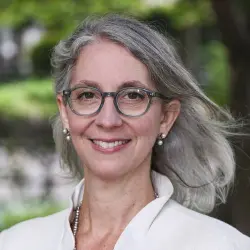

2:00 pm EST - 3:00 pm EST
Past Event
Across America, states and cities are grappling with how to address the catastrophic toll of COVID-19 on student learning and well-being. A third of young people are reporting feelings of unhappiness and depression, as students miss their friends, teachers, and learning with direct interaction. Families are battling with nonworking technology, and many live in low-income communities that are virtually shut out of learning due to a lack of digital technology. It is no surprise that estimates of academic learning loss are running up to six months and are hitting low-income students and students of color the hardest.
However, one lesson the pandemic has revealed is the vast energy of a wide range of actors outside the school walls—from families to food banks to employers—who can be powerful education allies for supporting the holistic development of young people. By harnessing this energy, we can lay the foundation for a new way of schooling that our nation needs—one that is flexible, customized to local needs, and equitable and that brings together educators, students, communities, and families to support every student every day. The Brookings Task Force on Next Generation Community Schools envisions a scaled-up community schools approach where schools are the hub of children’s education and development—powered by shared leadership between schools and families, enriched learning experiences, integrated student supports, and strong community partnerships—to interrupt the growing education inequality.
On February 25, the Center for Universal Education hosted a webinar to launch the task force’s report “Addressing education inequality with next generation community schools: A blueprint for mayors, states, and the federal government.” The webinar examined what it would take to invest in and scale a next generation of community schools to neighborhoods across America, beginning with the school districts hardest hit by COVID-19 and education inequalities. Following keynote remarks, a moderated panel discussion of experts shared their perspectives on the unique ability of community schools to support whole child development and lay the foundation for 21st century teaching and learning.
Viewers submitted questions via email to [email protected] or via Twitter at #CommunitySchools.
Moderator

Panelist



Jon Valant, Lindsay Weixler
March 3, 2026
2026
Online only
Thursday, 2:00 pm - 3:00 pm EDT